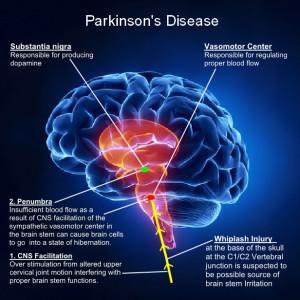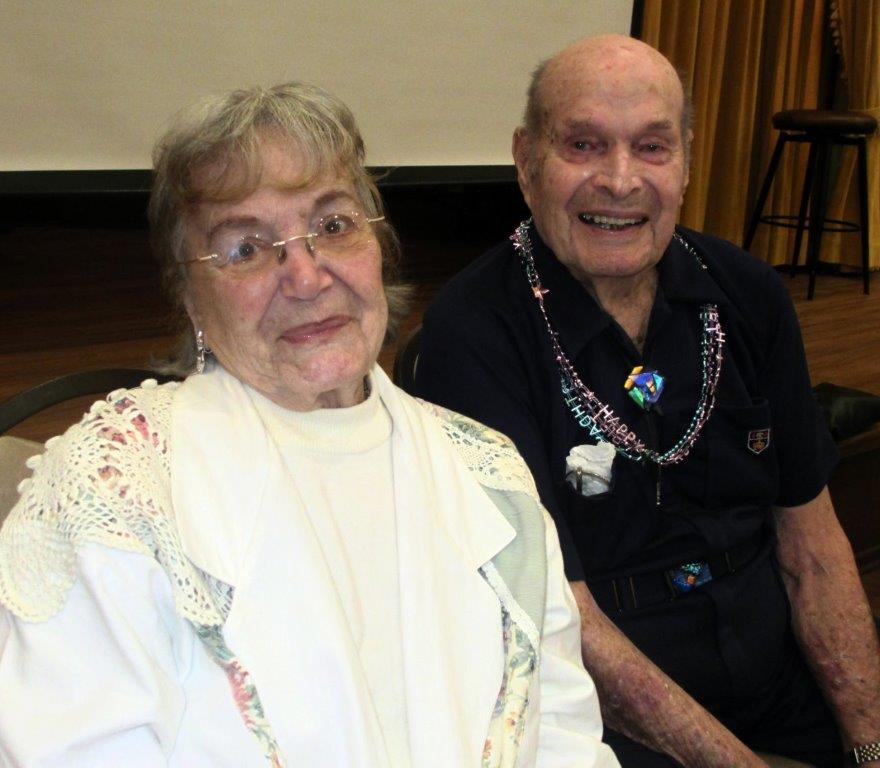John and Gloria enjoying John’s golden birthday.
By Jody Fickes Shapiro
Turning 100 is definitely a big deal…and still playing bridge besides. Well, that is downright impressive. To celebrate both amazing achievements, John Funk invited the entire membership of his bridge group and their spouses to join him for a catered supper at the Ventura Marina Mobilehome Park.
John was born on February 2, 1916, on Staten Island, N. Y. Europe was already at war , but General Pershing, who in 1917 led the American’s into battle overseas, was in Mexico in hot pursuit of Pancho Villa. Montanan Jeanette Rankin was the first woman elected to the U.S. Congress, and a first class letter stamp was 2 cents.
John’s family expected he would eventually join the family’s publishing business. After all, his father was editor-in-chief of the Funk and Wagnell’s dictionary division. John and his five siblings spent many hours at spelling practice. He continues to be a stickler when it comes to correct English. His friends say he is unbeatable at Scrabble.
In spite of the family’s expectations that he become a reference book publisher, he avoided college for five years working at a variety of odd jobs until he finally enrolled at The University of Michigan. In 1942, he graduated with a degree in mechanical engineering and married his beautiful wife, Jean whom he met as she sat with friends at a bridge table. When he graduated, the country was again at war.
John joined the Army Air Corps, and remained in the military for 27 years. During World War II, he served as pilot and engineering officer on the DC-3, B-17, B-29, and B-24 aircraft. Although a knee injury prevented him from seeing combat, he accrued over 5,000 hours of flight time, serving in the U.S. and England. During the Vietnam War, he alternated between there and The Philippines as Commander of the 1867th Facilities Checking Squadron.
Following his Air Force retirement, Major John returned to engineering. In 1979, upon retirement from The County of San Bernadino, he and Jean, with whom he had raised four children, discovered the Ventura Marina Mobile Home Park.
John, a bridge Life Master, was taught the game by his parents. John and his wife Jean played social bridge and tried duplicate when was at the Air Force Station in Newark, Ohio, but Jean preferred social bridge. John, however, continued to play wherever he was.
In the early 1980’s John met Mike Gaddis at the mobile home park and introduced him to duplicate and they have been Sunday partners ever since.
When John’s wife passed away, in 1991, he continued to play duplicate. One day up at a game in Ojai, he met another lovely lady, Gloria Lemmo, who had taught pharmacy at Ventura College. They married in 1994 and spent many years travelling the world, finding a bridge game wherever they could.
When asked by a reporter what makes John happy, his response was, “I’m just happy to wake up in the morning.”


